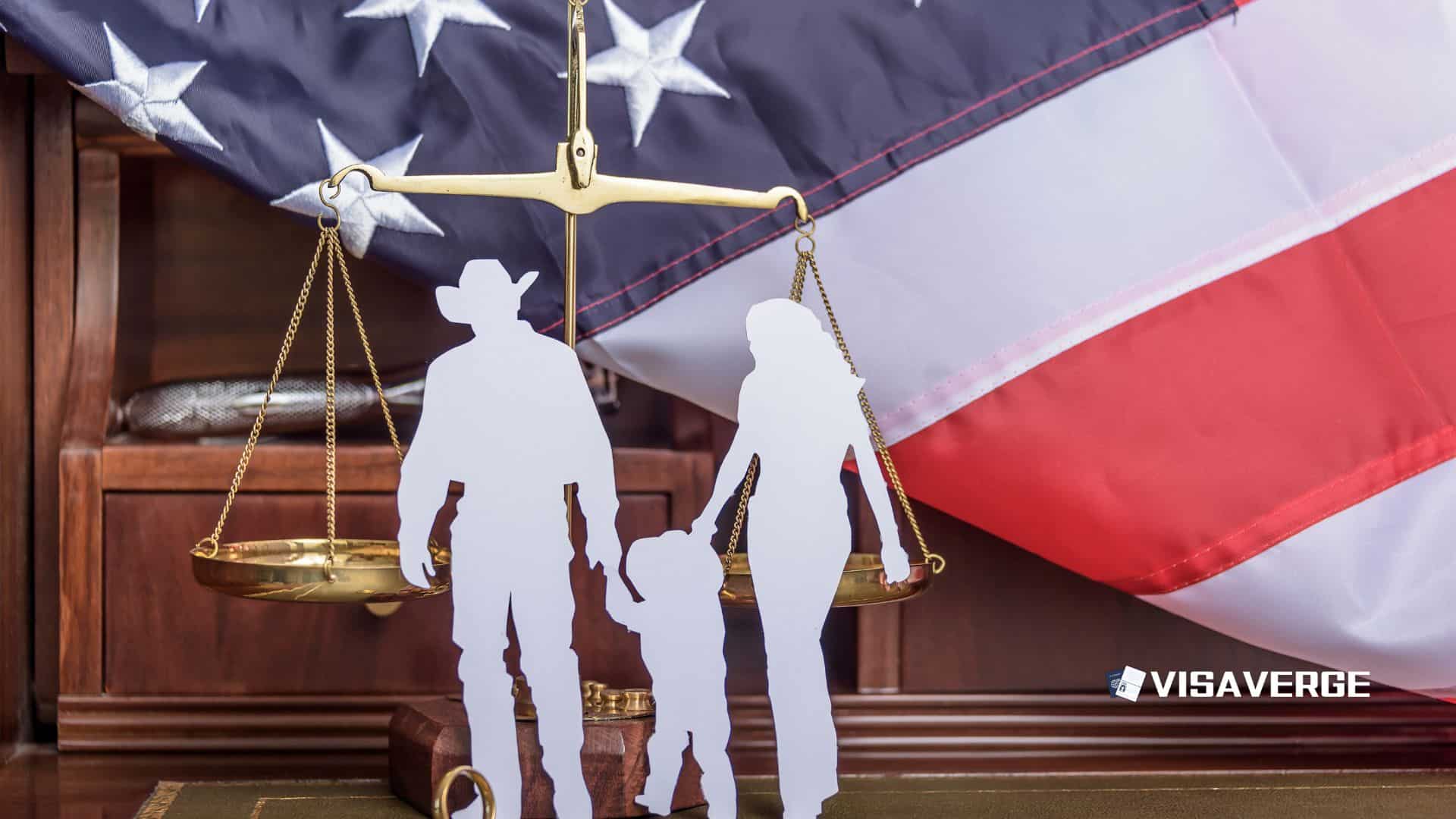Key Takeaways
• Boston reaffirmed its Trust Act in December 2024, prohibiting police from detaining individuals solely based on immigration status without a warrant.
• On March 5, 2025, Mayor Wu testified before Congress defending sanctuary policies against proposed federal funding cuts targeting sanctuary cities.
• Potential funding cuts pose fiscal risks for Boston, but legal challenges by cities like Chelsea aim to protect sanctuary policies.
In March 2025, Boston Mayor Michelle Wu defended her city’s sanctuary city policies in a speech that underlined Boston’s commitment to immigrant communities and public safety. Speaking at a pro-immigrant event, Wu made clear that Boston would continue its long-standing practice of protecting vulnerable populations while fostering trust between immigrants and local law enforcement. Unsurprisingly, her remarks triggered passionate responses across the political spectrum, emphasizing the ongoing national debate over immigration enforcement, local governance, and federal authority.
Boston’s Trust Act and Sanctuary Policies

At the core of Wu’s defense is Boston’s Trust Act, a local law first enacted in 2014 and reaffirmed in December 2024. This legislation sets rules for how Boston’s law enforcement interacts with federal immigration agencies. For example, under the Trust Act, police are prohibited from detaining individuals based solely on their immigration status unless a judicial warrant is provided. This policy reflects Boston’s focus on building safe and inclusive communities where immigrants are not afraid to report crimes or cooperate with investigations.
In her address, Wu spoke about Boston’s identity as a sanctuary city and its central role in creating a welcoming atmosphere for everyone, regardless of immigration status. She highlighted the city’s diversity, noting that one in four Boston residents is foreign-born. For Wu, the sanctuary policies represent more than local governance; they are emblematic of Boston’s values of fairness and inclusion.
Wu also pointed to practical benefits of these policies. By limiting cooperation with federal immigration enforcement, the city ensures that immigrant communities feel safe approaching local authorities. She argued that this trust is critical to maintaining public safety because it encourages crime reporting and deters community isolation. According to Wu, fostering trust—rather than fear—between law enforcement and residents is essential to the well-being of Boston and its people.
Federal Pushback at Congressional Hearings
While Wu’s commitment to sanctuary city policies has been popular locally, it has faced fierce resistance at the federal level. On March 5, 2025, Wu joined mayors from other sanctuary cities, including New York City, Chicago, and Denver, to testify before the House Committee on Oversight and Government Reform. The hearing, chaired by Republican Congressman James Comer, scrutinized the legality and consequences of sanctuary policies. Comer and other Republican lawmakers argued that these policies shield undocumented immigrants, some of whom engage in criminal activity, from federal accountability. They contended this compromises public safety and undermines federal immigration laws.
During the hearing, some lawmakers proposed cutting federal funding to sanctuary cities, suggesting that financial penalties might force cities like Boston to abandon these policies. Wu strongly disputed these claims, insisting that the Trust Act aims to prioritize public safety by fostering community trust. She argued that deportation-focused federal enforcement undermines social cohesion and discourages immigrants from participating in community life. For Wu, sanctuary city policies are not about protecting criminals, as critics allege, but about guaranteeing that all residents, regardless of status, feel secure contributing to and engaging with their city.
Wu’s defense brought attention to a broader question: where does federal authority end, and local autonomy begin? Boston’s sanctuary status puts the city at odds with federal immigration policies, setting the stage for potential legal battles over these complex jurisdictional issues.
Local Support for Wu’s Stance
At home, Wu’s pro-immigrant stance has been met with strong support from Boston’s residents and leaders. Boston City Council President Ruthzee Louijeune echoed the mayor’s arguments, emphasizing that immigrant protections are not just about morality but about safeguarding the city’s economic and cultural contributions. Immigrants play a vital role in Boston’s workforce and bring diversity that enriches the city’s identity, Louijeune noted. She added that sanctuary policies ensure that immigrant families can live without constant fear of separation.
Community groups in Boston also rallied behind Mayor Wu. Local organizations praised her for prioritizing immigrant rights and standing firm against heavy-handed federal policies. Many argued that sanctuary city policies help protect vulnerable populations while improving access to public services such as education and healthcare. These endorsements reflect a strong local consensus in favor of protecting Boston’s immigrant residents, even in the face of financial and legal risks.
Beyond Boston, other Massachusetts municipalities like Chelsea and Somerville have also doubled down on sanctuary status. Both cities filed lawsuits challenging federal actions aimed at dismantling sanctuary city policies. These legal actions illustrate the deep commitment of Massachusetts cities to shielding immigrants from federal enforcement measures that they view as intrusive and harmful.
The National Battle Over Sanctuary Cities
The controversy surrounding sanctuary cities extends far beyond Boston, reflecting the nation’s larger divisions over immigration policy. President Trump’s administration has renewed its focus on dismantling sanctuary city protections following his re-election in 2024. Federal officials argue that sanctuary policies reflect a disregard for immigration law and a threat to national security. As part of its campaign, the administration has launched legal battles against sanctuary jurisdictions, including lawsuits targeting major cities and states that provide protections to undocumented immigrants.
For cities like Boston, these developments raise serious concerns about the boundaries of federal authority. While the federal government controls immigration laws, municipalities like Boston argue that they have the right to manage local policies in ways that best serve their residents. Wu’s December 2024 push to reaffirm the Trust Act was a proactive response to these federal pressures. By standing firm on sanctuary laws, Boston positioned itself as a prominent player in the resistance to what many local leaders see as federal overreach.
Potential Legal and Financial Consequences
One of the greatest risks facing Boston and other sanctuary cities is the loss of federal funding. Federal dollars help finance key programs in areas like education, public health, and housing. If Boston’s sanctuary status leads to funding cuts, the resulting financial strain could severely affect the city’s budget and services.
To mitigate these risks, some cities have turned to the courts. Chelsea and Somerville’s lawsuits against the federal government aim to protect their sanctuary city policies and challenge the legality of financial penalties tied to immigration enforcement. If successful, these legal battles could set powerful precedents protecting local autonomy. However, if the courts side with the federal government, Boston and other sanctuary cities might have to choose between preserving their sanctuary policies and maintaining access to critical federal funds. This dilemma underlines the precarious position of sanctuary cities in the current political climate.
Broader Implications for the Nation
The battle over sanctuary cities raises questions that are as philosophical as they are legal. At its heart, the debate is about the kind of society the United States wants to be. Supporters of sanctuary cities argue that America’s values include inclusivity, protection of vulnerable populations, and respect for local governance. They see sanctuary policies as embodying these ideals by prioritizing fairness and community safety over rigid enforcement.
Opponents, however, argue that sanctuary cities undermine the rule of law. They believe that by refusing to cooperate with federal immigration authorities, sanctuary cities encourage undocumented immigration and create pockets of legal noncompliance across the country. To them, this issue is less about community values and more about ensuring a consistent and enforceable immigration system nationwide.
For Boston, the outcome of this national debate could have significant consequences. If federal efforts to cut funding or enforce compliance succeed, the city may face hard choices about its policies and priorities. On the other hand, victories in court or changes in federal leadership could strengthen Boston’s ability to maintain its sanctuary status without fear of reprisal.
Conclusion
Mayor Michelle Wu’s commitment to Boston as a sanctuary city highlights the complexity and urgency of immigration issues in America today. Her reaffirmation of the Trust Act and broader sanctuary policies has earned widespread support locally but ignited intense criticism at the federal level. As calls to defund sanctuary cities grow louder, Boston finds itself at the forefront of a national struggle over how immigration and community safety intersect.
Whether through court rulings, federal action, or local resilience, the final outcome of these debates will shape not only the lives of Boston’s immigrant residents but also the broader landscape of governance and immigration across the United States. As this contentious issue unfolds, one question looms large: how do cities like Boston balance their commitment to inclusivity with the pressures of federal immigration law? The answer may well define the future of sanctuary cities both in Massachusetts and across the nation. For more on sanctuary cities and immigration policies, visit the U.S. Citizenship and Immigration Services (USCIS) for in-depth resources.
Learn Today
Sanctuary City → A city that limits local government cooperation with federal immigration enforcement to create safer environments for immigrants.
Trust Act → A local law prohibiting police from detaining individuals based solely on immigration status without a judicial warrant.
Judicial Warrant → A legal document issued by a judge authorizing law enforcement actions like arrests or searches.
Federal Authority → The legal power held by the U.S. federal government to enforce national laws and policies.
Local Autonomy → The ability of municipal governments to govern themselves and make decisions on local policies independently from federal control.
This Article in a Nutshell
Boston Mayor Michelle Wu’s 2025 sanctuary city defense underscores a pivotal question: community trust or federal control? By reaffirming the Trust Act, Boston prioritizes safety and inclusivity, ensuring immigrants report crimes without fear. Critics cite law enforcement concerns, but the debate reveals a deeper struggle—balancing local values with federal authority in shaping America’s future.
— By VisaVerge.com
Read more:
• Sanctuary City Mayors Stand by Immigration Policies Before House Panel
• Republicans Focus on 4 Sanctuary Cities as Trump Backs Deportation Plan
• California Democrats Reconsider Sanctuary Policies Amid Trump Deportation Plans
• Fresno Church Prepares Sanctuary as Trump Targets Immigration Policies
• Sanctuary Cities Face Threats as States Back Trump’s Immigration Crackdown













